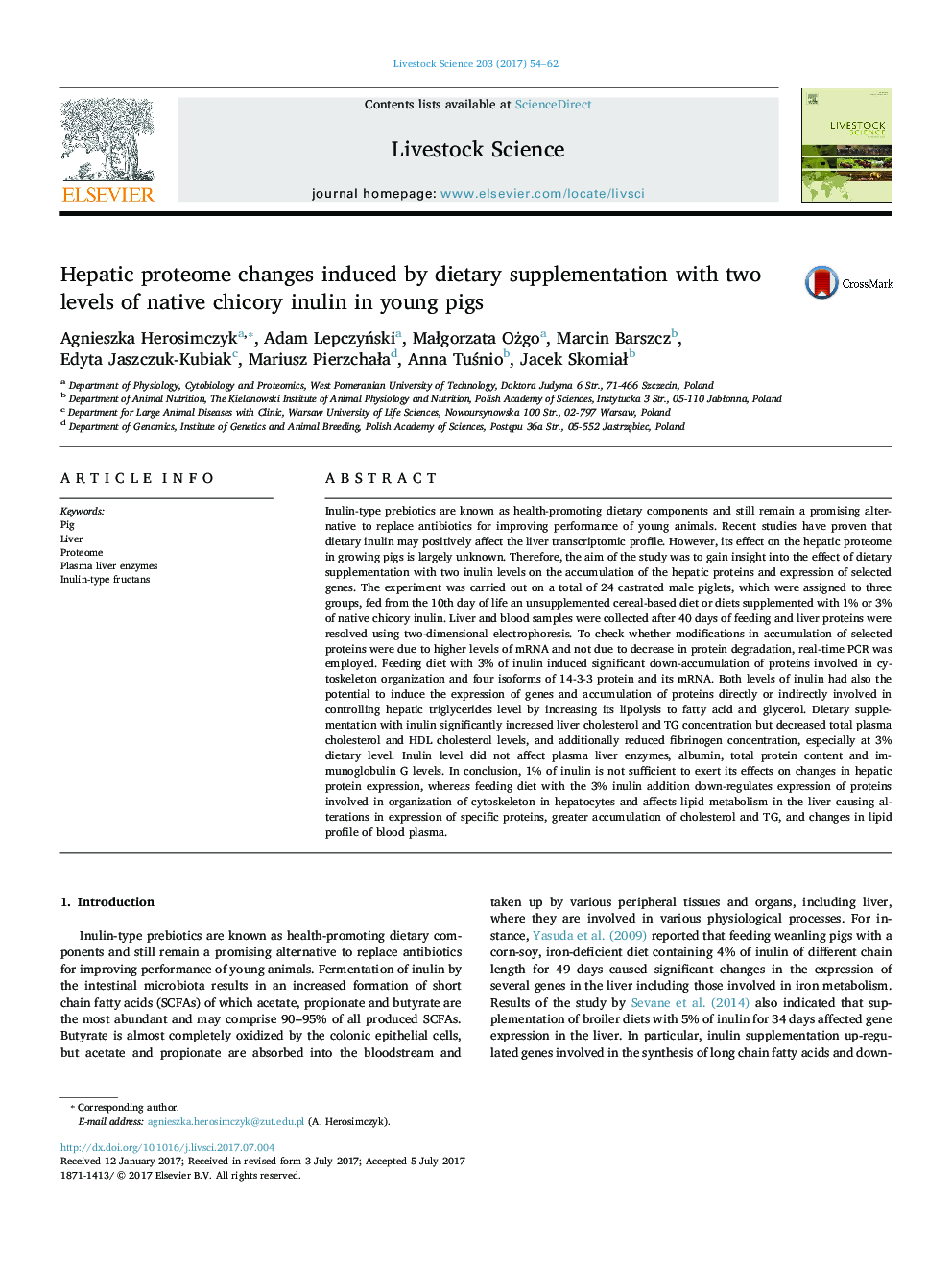| Article ID | Journal | Published Year | Pages | File Type |
|---|---|---|---|---|
| 5543005 | Livestock Science | 2017 | 9 Pages |
Abstract
Inulin-type prebiotics are known as health-promoting dietary components and still remain a promising alternative to replace antibiotics for improving performance of young animals. Recent studies have proven that dietary inulin may positively affect the liver transcriptomic profile. However, its effect on the hepatic proteome in growing pigs is largely unknown. Therefore, the aim of the study was to gain insight into the effect of dietary supplementation with two inulin levels on the accumulation of the hepatic proteins and expression of selected genes. The experiment was carried out on a total of 24 castrated male piglets, which were assigned to three groups, fed from the 10th day of life an unsupplemented cereal-based diet or diets supplemented with 1% or 3% of native chicory inulin. Liver and blood samples were collected after 40 days of feeding and liver proteins were resolved using two-dimensional electrophoresis. To check whether modifications in accumulation of selected proteins were due to higher levels of mRNA and not due to decrease in protein degradation, real-time PCR was employed. Feeding diet with 3% of inulin induced significant down-accumulation of proteins involved in cytoskeleton organization and four isoforms of 14-3-3 protein and its mRNA. Both levels of inulin had also the potential to induce the expression of genes and accumulation of proteins directly or indirectly involved in controlling hepatic triglycerides level by increasing its lipolysis to fatty acid and glycerol. Dietary supplementation with inulin significantly increased liver cholesterol and TG concentration but decreased total plasma cholesterol and HDL cholesterol levels, and additionally reduced fibrinogen concentration, especially at 3% dietary level. Inulin level did not affect plasma liver enzymes, albumin, total protein content and immunoglobulin G levels. In conclusion, 1% of inulin is not sufficient to exert its effects on changes in hepatic protein expression, whereas feeding diet with the 3% inulin addition down-regulates expression of proteins involved in organization of cytoskeleton in hepatocytes and affects lipid metabolism in the liver causing alterations in expression of specific proteins, greater accumulation of cholesterol and TG, and changes in lipid profile of blood plasma.
Keywords
Related Topics
Life Sciences
Agricultural and Biological Sciences
Animal Science and Zoology
Authors
Agnieszka Herosimczyk, Adam LepczyÅski, MaÅgorzata Ożgo, Marcin Barszcz, Edyta Jaszczuk-Kubiak, Mariusz PierzchaÅa, Anna TuÅnio, Jacek SkomiaÅ,
